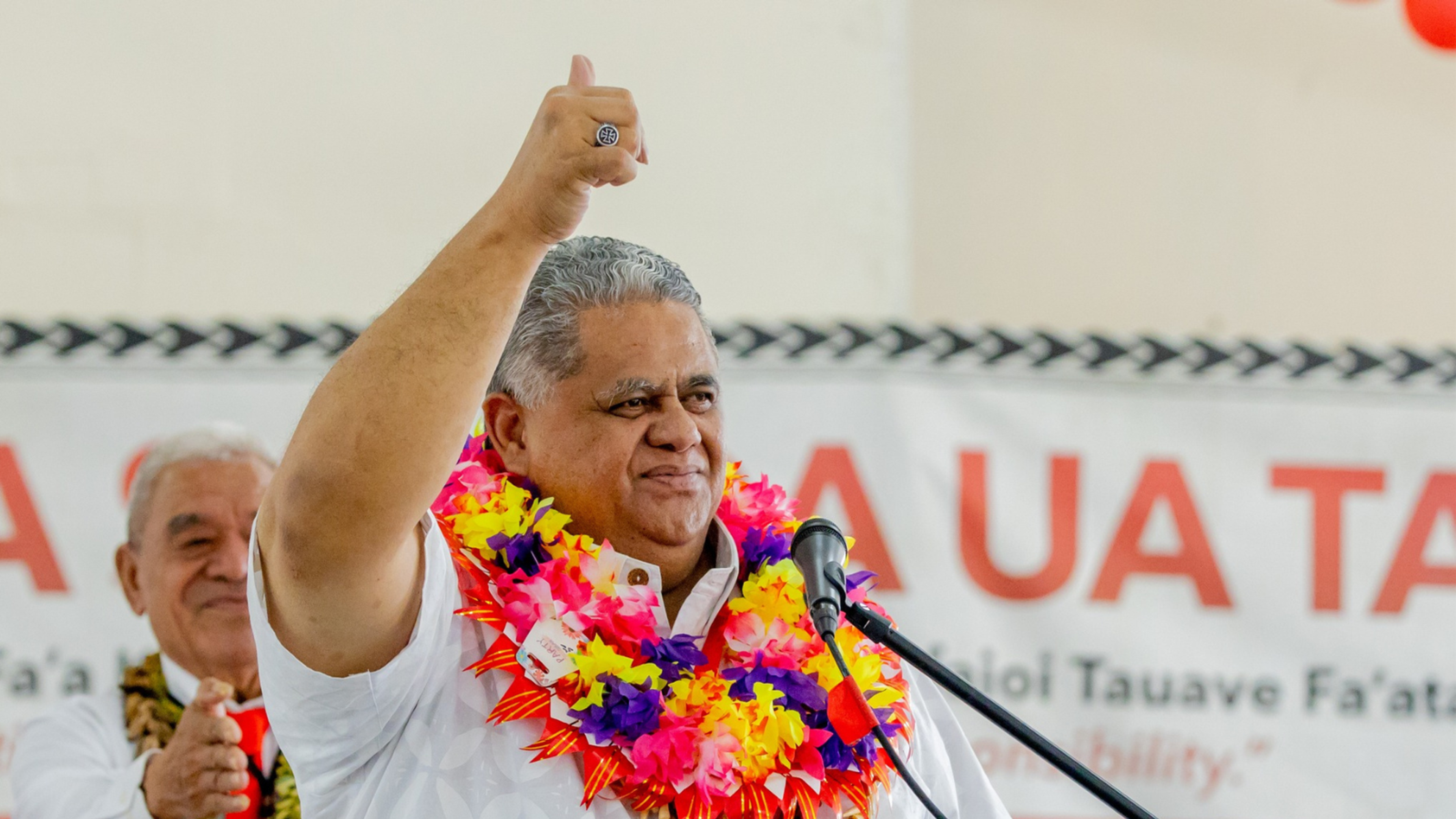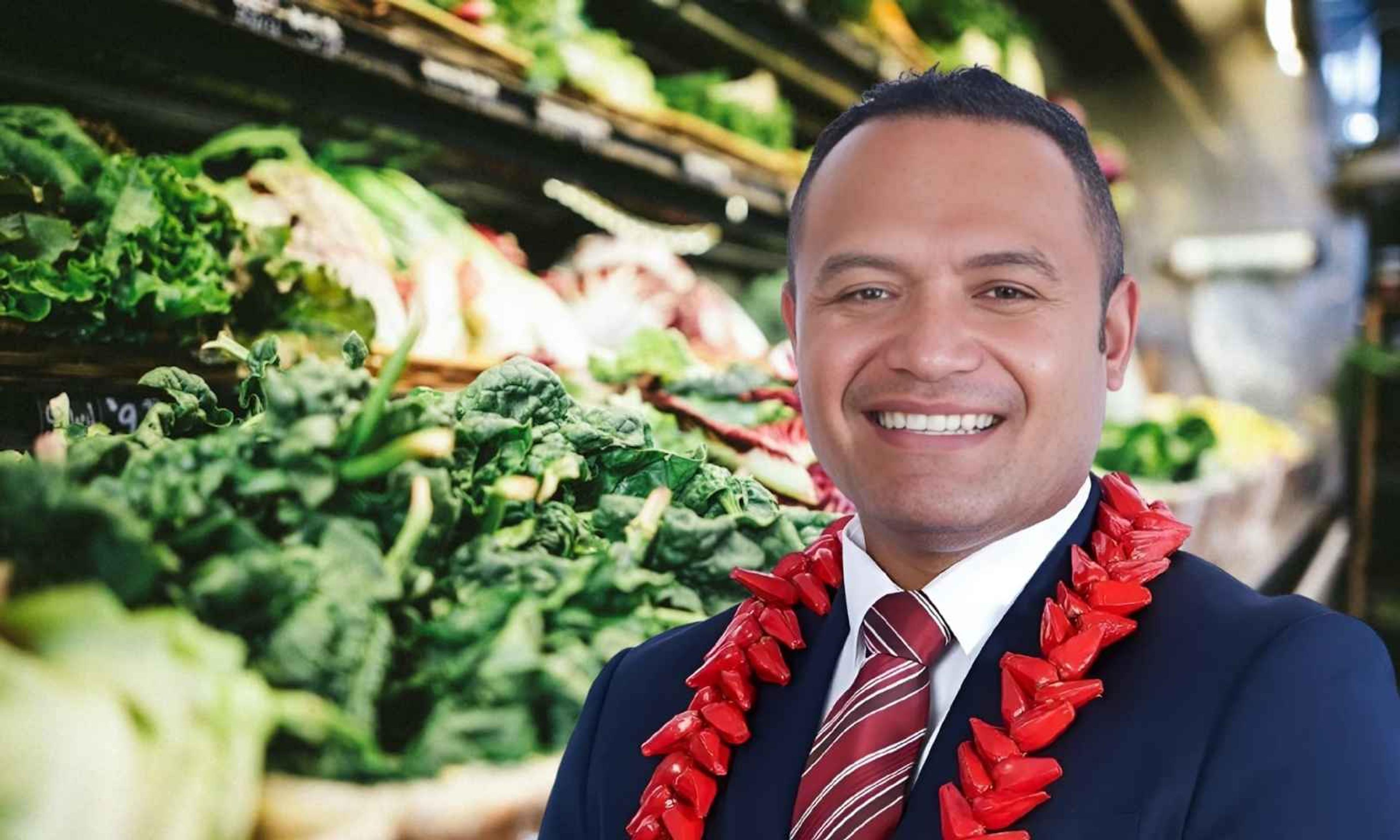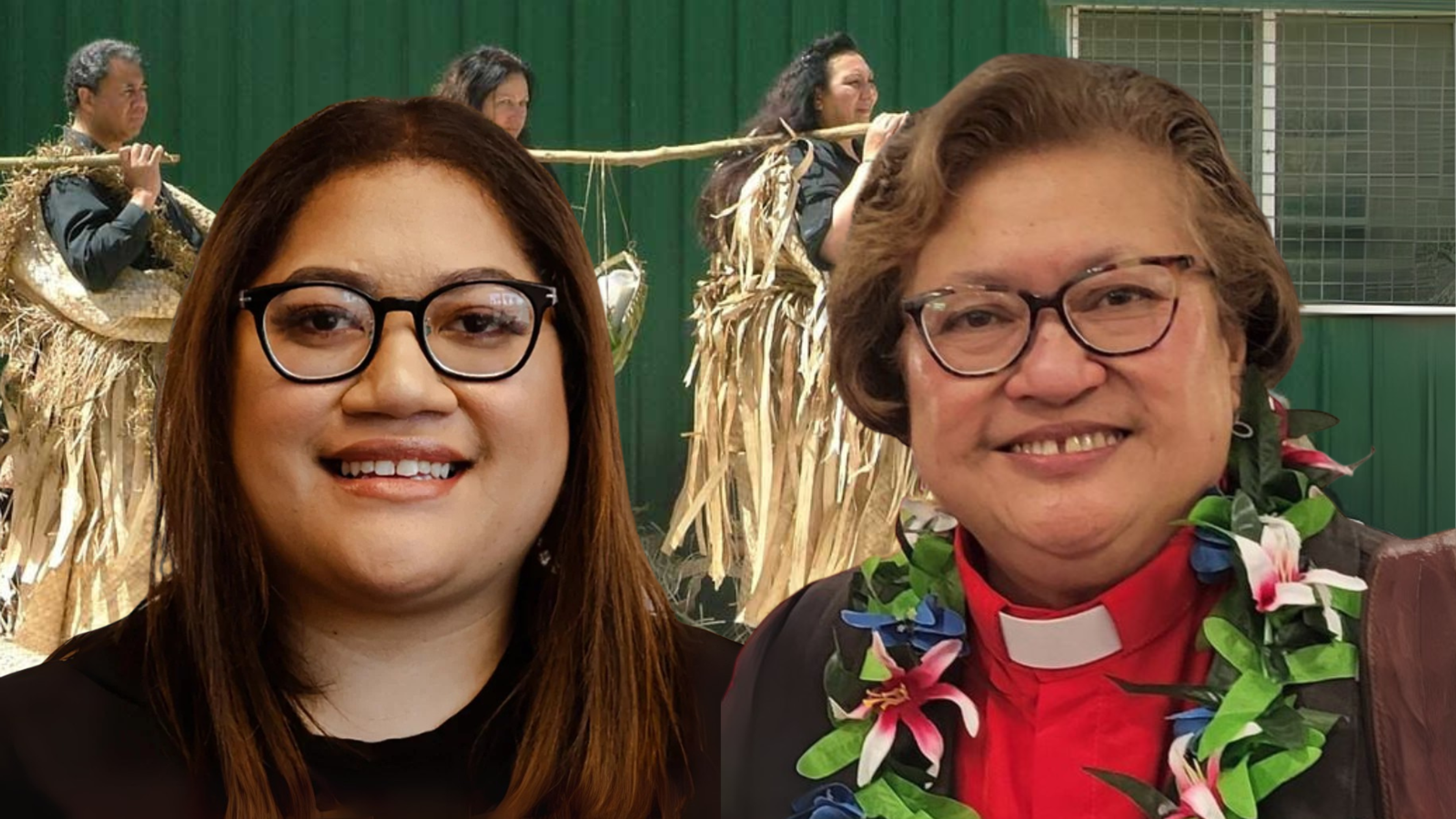

Dr Lefaoali'i Dion Enari would like to see more Pacific sportspeople move from playing into governance positions, as New Zealand Rugby's Pasifika Engagement Manager, Saveatama Eroni Clarke has done.
Photo/ RNZ
Researcher questions why more Pacific aren't going from playing to boardroom
Dr Lefaoali'i Dion Enari joined Pacific Mornings to discuss the lack of Pacific presence in roles that shape the world of sports.



Pacific health expert calls for bold action as supermarket reforms fail to fight food crisis

Embracing grief: The sacred space of Sāmoan and Tongan traditions in mourning

Flying Fijians soar past Manu Sāmoa and help Tonga to a RWC spot


FAST party confirmed winners with crushing majority in Sāmoa’s snap general election

Pacific health expert calls for bold action as supermarket reforms fail to fight food crisis

Embracing grief: The sacred space of Sāmoan and Tongan traditions in mourning

Flying Fijians soar past Manu Sāmoa and help Tonga to a RWC spot
Dr Lefaoali'i Dion Enari joined Pacific Mornings to discuss the lack of Pacific presence in roles that shape the world of sports.
A university lecturer is calling on New Zealand’s sporting organisations to open up more governance roles to Pacific people.
AUT senior lecturer in sports and recreation Dr Lefaoali’i Dion Enari, who was speaking with Levi Matautia-Morganon 531pi’s Pacific Mornings, says it’s great seeing increased Pacific representation in the upper echelons of sport, but that needs to translate to the administration too.
“They’re happy to have us as the blood labour, the sweat labour, but not have us owning the whole process,” he says.
Watch Dr Enari's full interview below:
Dr Enari’s research highlights the imbalance between Pacific peoples in playing and non-playing roles in sports.
He says the increased presence of Pacific athletes in mainstream sports is good, but there needs to be more input from Pacific peoples off the field.
“I absolutely celebrate that we’re starting to see more of our culture reflected in the sporting space, a massive increase of our people playing at top level. But that increase isn’t being reflected at all parts of the sporting system.
“Particularly in the boardroom, so just trying to advocate for our people in boardroom spaces, and more of our cultural knowledge to be included in the sporting space beyond the welcoming ceremonies and the fans chanting.”
Dr Enari has conducted research on these issues, and has highlighted factors that have stunted Pacific people’s presence in the off-field space.
As a result, he says rules in some sporting codes didn’t align with Pacific athletes' culture and beliefs.
“So many of our Pacific athletes in these mainstream sports do well and are leaders in their sports. But the rules in these sporting codes don't reflect our cultural beliefs.
“(Games) being on days we worship on Sunday, some of them being culturally insensitive. I think too just seeing the process behind the scenes, a lot of decision making on Pacific athletes are done by the hands of Palagi practitioners.
“I found that quite problematic.”
Through Dr Enari’s research, he acknowledges the great work done in New Zealand to help give Pacific athletes a voice in governance roles, making mention of New Zealand Rugby’s Pasifika Strategy.
“Traditionally there’s a lot of gatekeeping as well with the ‘old boys club’ which is very prevalent and still occurs today.
“But I also want to platform the awesome initiatives such as the Pacific strategy for New Zealand Rugby, and the work done there to increase the presence of Pacific in non-playing roles.
“There is a movement occurring now, but we just need it to move faster!”
Despite these issues, Dr Enari makes it clear that the few people who do have influence in the off-field, governance spaces does make a difference.
“Just their presence in those spaces sends a message both to the mainstream sports systems that we’re not just athletes, we can hold these powerful positions as well.
“It’s also a strong message to our own communities that we can do it!”